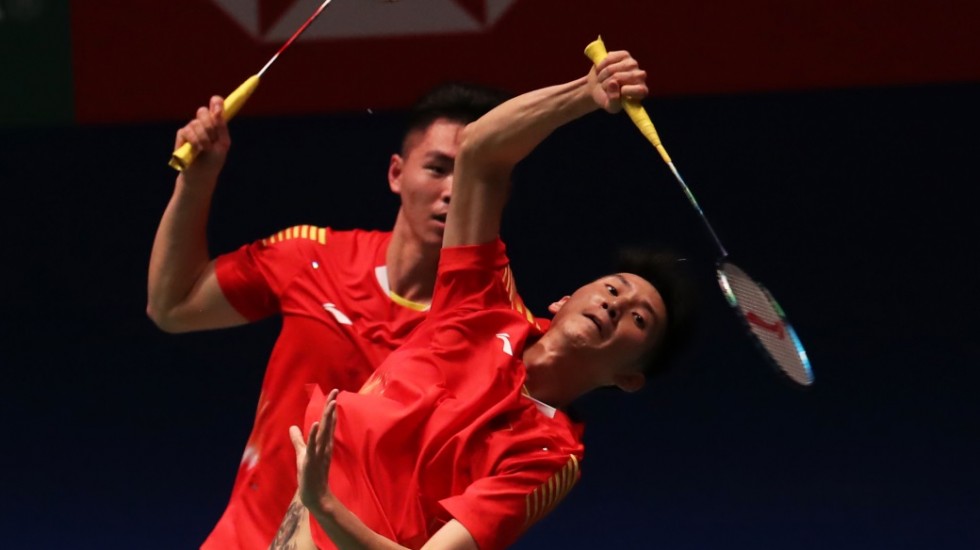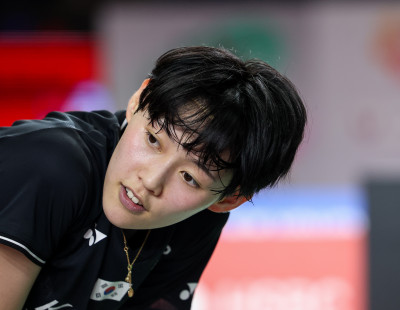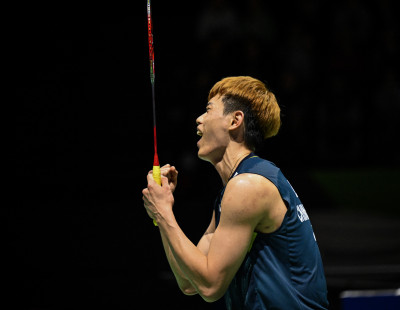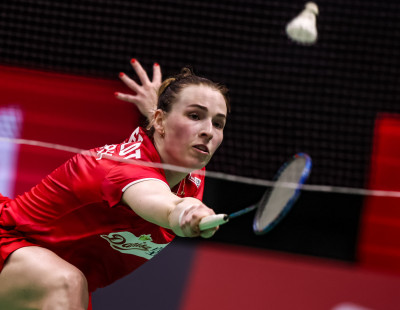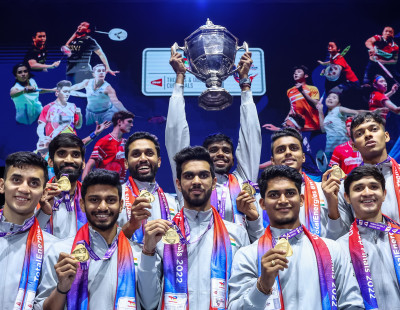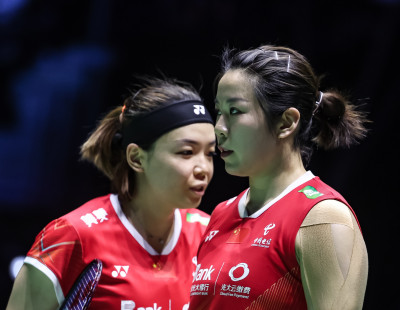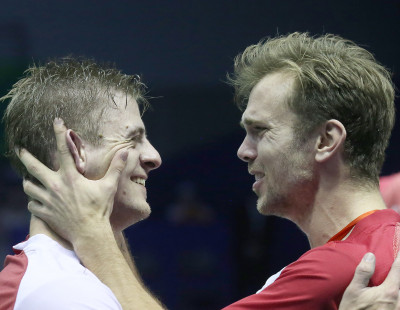When they look back at the season, China and Japan will have many reasons to feel satisfied. A crop of emerging players have already taken their place among the elite, promising to carry the nation’s aspirations on their shoulders.
The honouring of the young Chinese pair Han Chengkai and Zhou Haodong with the ‘Most Promising Player of the Year’ award was recognition of how much they have already accomplished in their fledgling career. Just last year, they were playing the qualifying events of the Superseries. In 2018, however, they were in contention at the business end of tournaments, making semifinals in India and Singapore before finishing runners-up at the VICTOR China Open and winning the YONEX French Open.
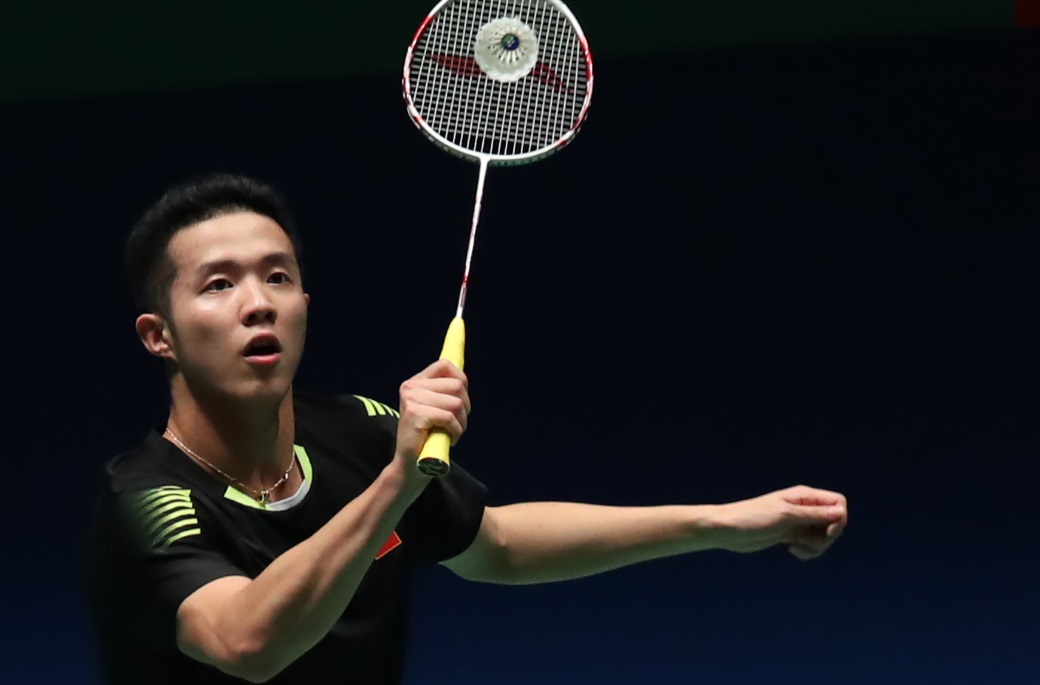
They will also take pride in being the only pair to beat the all-conquering duo of Marcus Fernaldi Gideon and Kevin Sanjaya Sukamuljo twice this year.
Han and Zhou were named for the honour ahead of Apriyani Rahayu (Indonesia), He Jiting (China), Goh Jin Wei (Malaysia) and Gregoria Mariska Tunjung (Indonesia).
“This award is of great significance to us,” said Han Chengkai. “This was a year in which we showed great improvement in our performances. We had great results at the China Open and the French Open. This will inspire us to get better.”
China thus has strong backup pairs for their world champions Li Junhui/Liu Yuchen in the form of Han/Zhou and He Jiting/Tan Qiang, and possibly Ou Xuanyi/Ren Xiangyu – while still being able to call upon the services of experienced duo Zhang Nan/Liu Cheng.
He Jiting was also nominated in the ‘Most Improved Player’ category alongside Mayu Matsumoto/Wakana Nagahara (Japan), Seo Seung Jae (Korea), Satwiksairaj Rankireddy/Chirag Shetty (India), and Anthony Sinisuka Ginting (Indonesia).
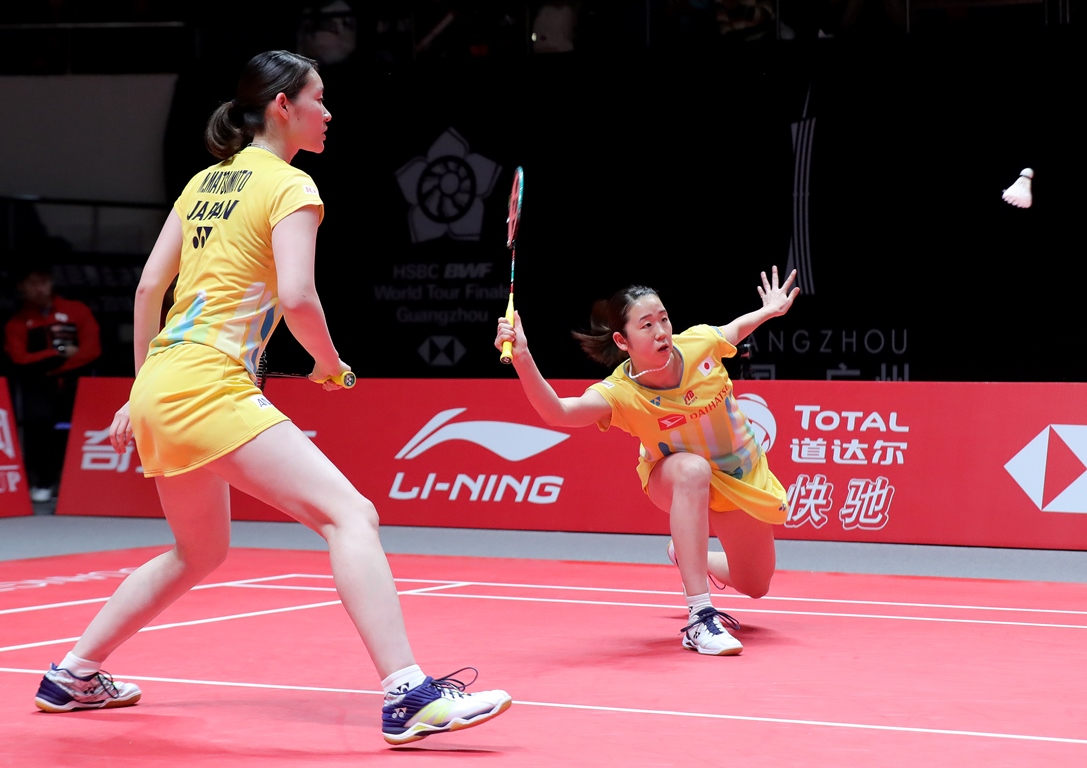
It was Matsumoto and Nagahara who won the nod of the Awards Commission, with the Japanese pair showing tremendous poise in winning the TOTAL BWF World Championships, and continuing with strong performances through the season. Matsumoto and Nagahara were among a clutch of Japanese Women’s Doubles pairs to perform strongly. While established pairs like Misaki Matsumoto/Ayaka Takahashi, Yuki Fukushima/Sayaka Hirota and Shiho Tanaka/Koharu Yonemoto were in the forefront, other young pairs emerged, such as Ayako Sakuramoto/Yukiko Takahata, Nami Matsuyama/Chiharu Shida and Misato Aratama/Akane Watanabe. Japan’s dominance of Women’s Doubles looks set to continue.
“It’s really special for us to win this award. It’s a great reward for the hard work we’ve put in this year,” said a delighted Matsumoto.
The year that passed by was unusual in the sense that only a few players and pairs dominated the whole season. While Tai Tzu Ying (Chinese Taipei) ruled Women’s Singles with seven World Tour titles and the Asian Games gold, Kento Momota (Japan) made a stirring return to elite badminton by winning the Badminton Asia Championships and the World Championships, besides World Tour titles in Japan, Denmark and China. Marcus Fernaldi Gideon/Kevin Sanjaya Sukamuljo in Men’s Doubles and Zheng Siwei/Huang Yaqiong in Mixed Doubles were the standout pairs in their categories.
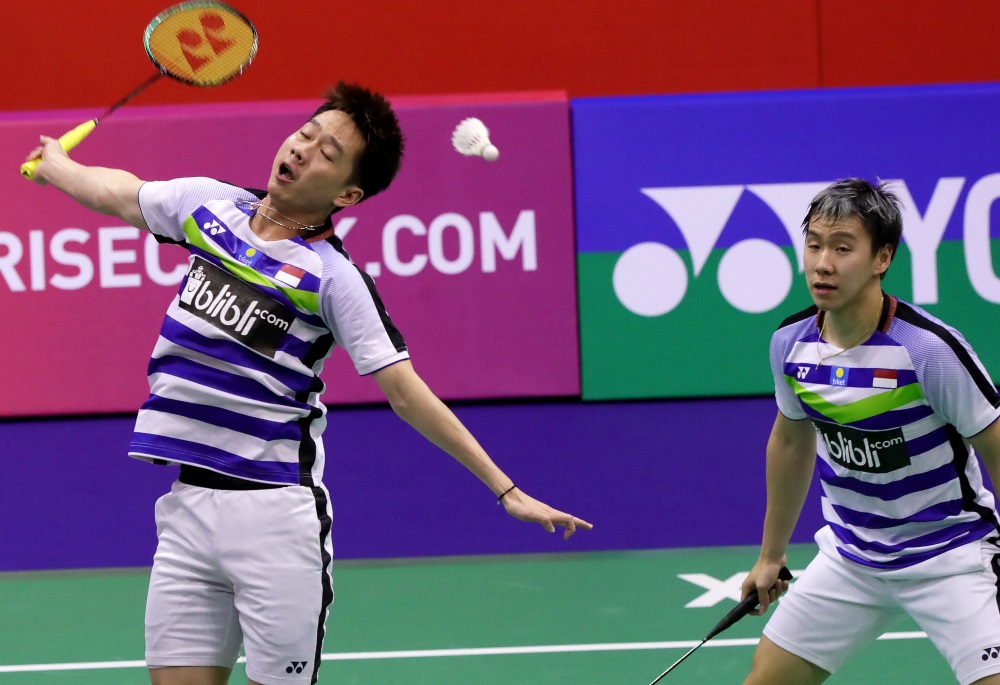
Momota (Japan), Zheng (China) and Gideon and Sukamuljo (Indonesia) were in the running for the Male Player of the Year award; the ‘Minions’ were named for the honour for the second successive year after a stellar season that saw them claim eight World Tour titles besides the Asian Games gold.
“It’s a great honour to win this award for the second straight time. It’s an inspiration for us to keep working hard. We did well all through the season but I would say our highlight was winning the Asian Games gold,” Sukamuljo said.
For the Female Player of the Year, the nominees were Tai Tzu Ying, Huang Yaqiong and Japan’s Yuki Fukushima/Sayaka Hirota.
Huang, winner of nine titles – including the World Championships and the Asian Games – was named for the honour.
“Last year I was nominated but I missed it. This time I finally won this award and I feel really happy,” said Huang.


















